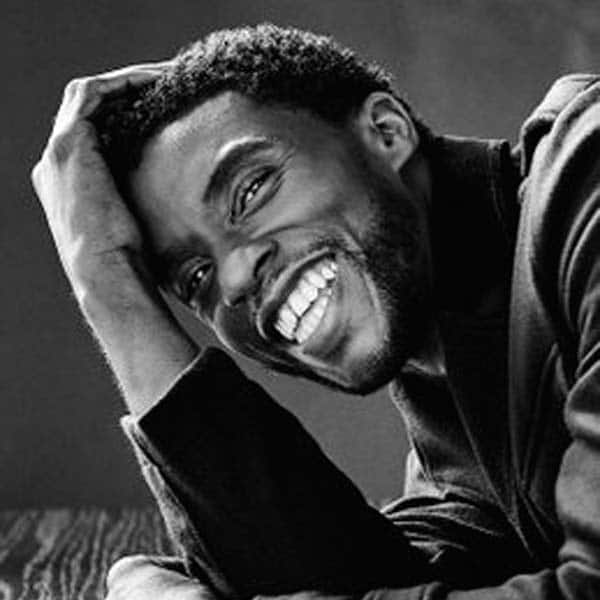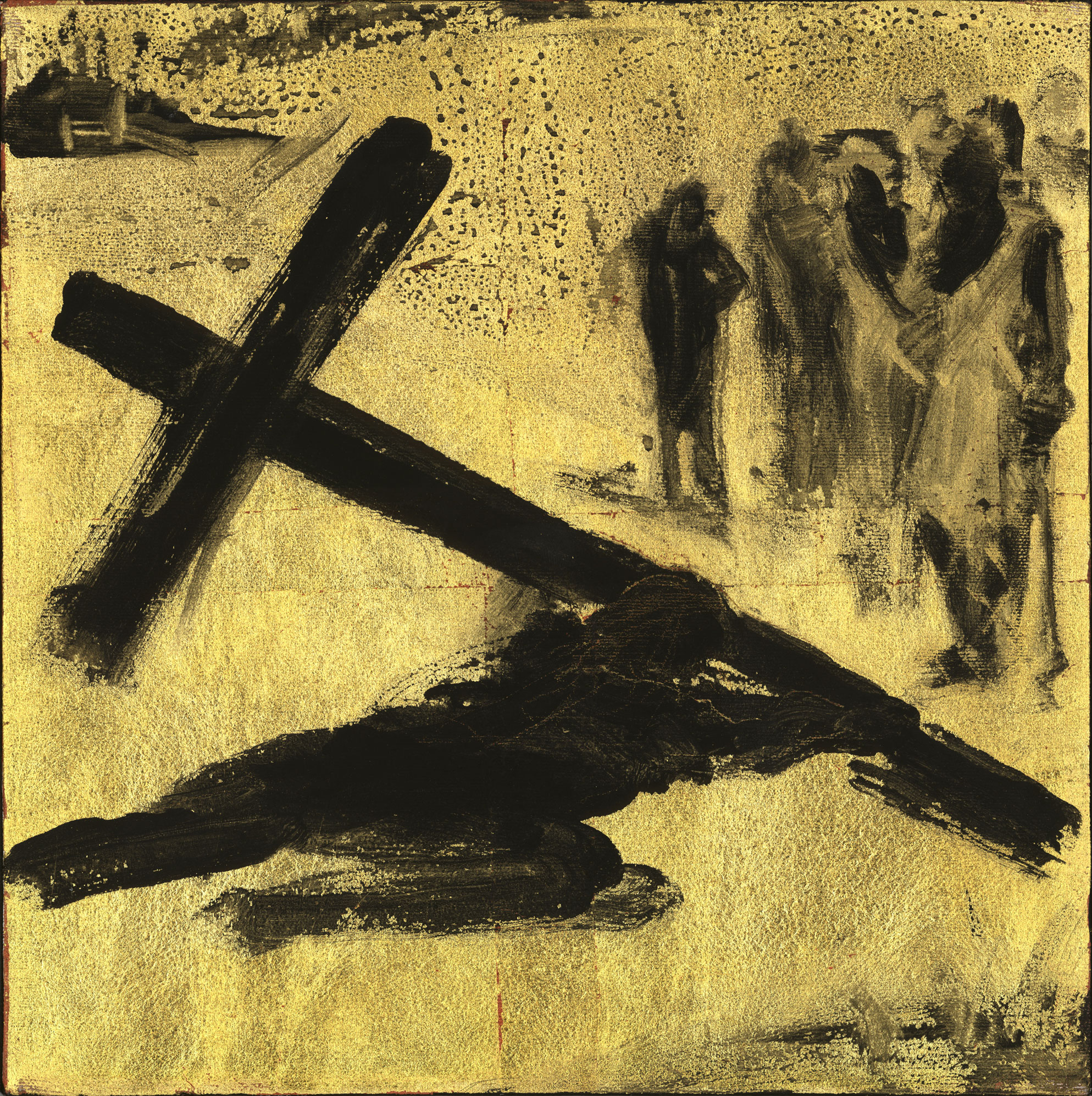A sermon preached on Sunday 30th August: Jeremiah 15:15-21 and Matthew 16:21-28
On hearing of the death of the actor Chadwick Boseman, Martin Luther King’s son - a human rights activist said: he ‘brought history to life on the silver screen’ in his portrayals of Black leaders.
He’d portrayed the baseball star Jackie Robinson in 42; James Brown the soul singer in Get on Up; and in Marshall played the Supreme Court justice Thurgood Marshall.
But many of us will remember him in Black Panther the ground breaking superhero movie which shattered stereotypes. He lent enormous dignity, strength, vulnerability and depth to the role.
In a previous Marvel film, his character T’Challa says: In my culture, death is not the end. It’s more of a stepping-off point.
That single line was chosen by many to serve as a testimony or tribute over the last 48 hours.
A line that perhaps expresses the hope that death does not have the final word; a line which expressed the faith not just of a fictional character, but of a man whose pastor recalled his commitment to worship and service.
But also perhaps a line that is fitting for someone who lived his life in the face of death following a cancer diagnosis 4 years ago.
As Black Panther, he was a superhero; as a man, Chadwick quietly, and less publicly was a role model.
When visit a children’s hospital, undergoing treatment himself, he didn’t just bring toys and a moment of starstruck glamour; he brought joy, inspiration and courage. Barack Obama met him at a White House workshop. Obama’s own tribute called him blessed; that he used his own power to give young people heroes to look up to. He said, to do it all while in pain - what a use of his years.
What a use of his years.
Death is not the end.
It’s a stepping-off point.
Image unknown, found here
Last week we reflected on the moment when Peter grasped who Jesus was.
Today, there’s a shift: from that point on, from that moment of recognition, Jesus begins to teach his disciples what being God’s Messiah means.
The words of rejection and suffering and even death don’t seem to fit with Peter’s assumptions or hopes.
Perhaps he and the others held onto a a view of the Messiah as a superhero; a mighty warrior who’d transform the world.
He was not prepared for this ‘something else’; for the implications of love.
It’s perhaps understandable that his loyalty kicks in; he’s pained by rejection and suffering, it doesn’t fit his assumptions.
It’s not surprising that his newly expressed and tentative faith should well up; that his reaction is one of protest and protection.
Peter’s words take Jesus back to the wilderness; to the experience of grappling with power, with vulnerability and with love.
The Temptation in the Wilderness: Briton Rivière
There, Jesus was haunted by the question: if you are the Messiah you can do anything.
You could grab attention and make some easy wins; create a spectacle and assert one’s might.
Peter’s words take him back to that moment of commitment to a way of love which went to the depths of human life.
Here we see again the vulnerability of God with us in human flesh.
Last we heard that it was not flesh and blood that enabled Peter to express who Jesus was, it was an insight from God.
Today, we hear him speak with human concerns and attitudes; he’s invited again to fix his heart on God.
Jesus looks on Peter and sees the tensions between head and heart, flesh and blood, faith and fear.
Jesus looks at him with love: love that blazes with challenge.
His response echo the words he used to confront the tempter: get behind me.
It’s a stinging rebuke: get behind me, get out of the way, don’t make me stumble.
But could it also be an invitation?
Get behind me: walk with me, place one foot in front of the other, follow me!
Follow me, be with me, learn from me.
From this time on the focus shifts. He Jesus is on the road now.
The one who’d healed those who suffered, will suffer to heal the world.
He’s on the road: walking to Jerusalem knowing that he’s on a collision course; knowing that he’ll confront those who hold on to power - religious, economic, political and social.
He’s on the road now:
Whilst others might ask, what a use of his years; of his power.
But this is love.
Death is not the end.
It’s a stepping-off point.
Jesus walks from Caesarea Philippi to Jerusalem.
He walks a narrow path; he walks through death’s dark vale.
And yet, in trial and ill, in fear and pain: this is not the end.
From this point of onwards, love is exposed for what it is.
Love that bears all things: that aches and consoles, reveals the human heart and forgives.
Jesus is committed to this path - the calling to walk to Jerusalem knowing that death is not the end; it is a jumping off point.
Perhaps we too need to walk from Caesarea Philippi to Jerusalem: asking what we need to let go of and asking if we’ve been attracted to the wrong sort of power.
What do we see as we look at our city: the fears the bind us and the powers the oppress?
Stations of the Cross: Audrey Frank Anastasi
To walk this way of the cross, to get behind our Lord, is to take steps in love: to be with the suffering, the heartbroken, the curious and the lonely.
To walk this way, to get behind our Lord, is to let go of concern for wealth, power and status; it it to embrace our vulnerability, to find their courage and creativity.
And sometimes, like Peter our expressions of faith and trust and love with be both profoundly real, and also fragile.
Yet, as the challenges of life encompass us, as we struggle we find new life, new purpose and new hope.
As our final hymn expresses it, we find in the cross our peace: for it’s very honestly about our human capacity to wound and to hurt.
If today’s culture sometimes risks being an analgesic, numbing us to the reality of suffering and death; the cross becomes instead a jumping off point.
A brighter day will dawn; all creation is renewed.
This love makes its home with us; heaven and earth will praise.
In death, Jesus reveals the limits of earthly power and control; his love deifies our death dealing patterns of life.
In resurrection, we see that death does not have the final word. Through God’s power, death is not the end, but a jumping off point.
The cross becomes the tree of life.
But walking this way, living this live, sharing this love can sometimes be costly.
This is the source of Jeremiah’s lament.
As a prophet, he lived through a turbulent period of history: God’s people had turned away from the commandments and his calling was to deliver unwelcome truths about the consequences of their actions.
This calling - to speak God’s word - has been a joy and delight; but it was increasingly a burden and source of misery.
It was hard to invite people to open their hearts to God; to turn their hearts outwards to others.
Yet in that bleak place of isolation, God is with him; in his vulnerability, we see signs of authenticity and hope.
To be human is to be vulnerable: we cry and bleed; we labour to bring life; we labour in our dying; we love and hope and strive; we grieve and seek justice.
And when we’re vulnerable, sometimes fear of death can become fear of life, or fear of living.
In trying to save our life we lose it: we keep our protective armour on and fear rejection.
And yet, in that valley of the shadow of death, we need have no fear for God is with us; and will comfort us.
The way of vulnerability is an invitation to live lightly and intensely; to live wholeheartedly; every moment, precious; to love with mutual affection. What a use of our years to encourage and show kindness to others; to bless and be hospitable; to welcome friend and stranger; to listen and be present. What a use of our years to love in ordinary.
Brené Brown, who writes a lot about Christian leadership - says: We live in a vulnerable world - yet instead of leaning into the messy side of life we try to numb vulnerability, but we forget that vulnerability is also the birthplace for joy, gratitude and happiness.
Taking up our cross - getting behind Jesus as we follow him - makes us vulnerable: to ridicule and misunderstanding; it invites us to take risks for love, even when we can’t guarantee the outcome.
Jesus invites us to walk this path: in him we find truth that sets us free - allowing us to be courageous and creative, to be authentic in love - alone and together.
Jeremiah feed on God’s word: as to we as scripture is broken open, as as bread is shared.
At the heart of cross shaped discipleship is the truth that the fullness of God is pleased to dwell in our fragile humanity; many of us will long to touch and take, eat and digest this word.
A fragile host, full of life and power; our anthem spoke of this body - a suffering body given for us; a dying body which brings us new and abundant life; transforming our bodies in his Body.
What a use of years.
To live in love.
Death is not the end.
It’s a stepping-off point.
© Julie Gittoes 2020




